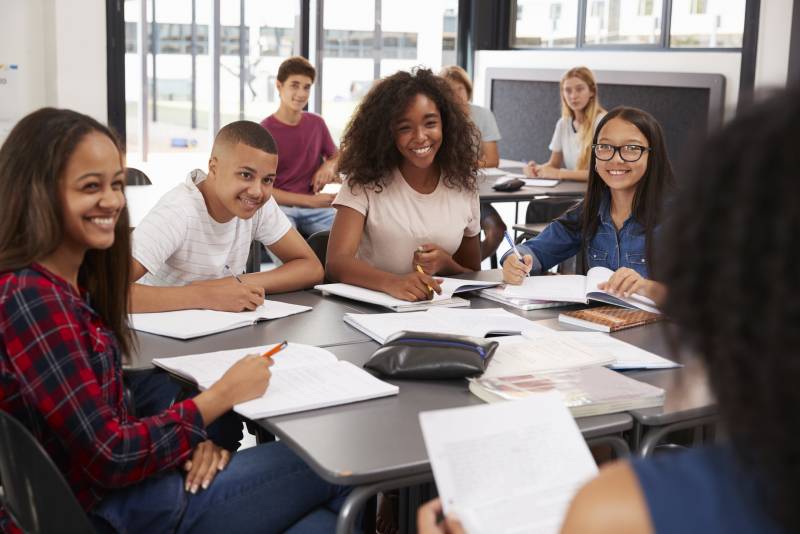The takeaways? Black girls want math teachers and classrooms that are open to social interaction and collective learning.
The study builds on a range of research demonstrating how teachers in the U.S. — who are primarily white — often view and treat Black girls differently from their peers in schools. The authors cite, for example, research that found math and science teachers were more likely to see Black girls as disruptive than white girls and less likely to recommend Black girls for honors classes. They also describe a study in which 48% of Black girls reported that they expected to attend graduate or professional school, but only 5% of their teachers expected them to do so.
According to Joseph, these internalized stereotypes often lead teachers of Black girls to focus on managing behavior. “These stereotypes get in the way,” she said. “So they’re not seeing emerging mathematicians because they’re so focused on the girls’ behaviors.”
What teachers should focus on instead, she said, is “trying to understand who these Black girls really are and trying to understand the ways in which they would like to engage in mathematics learning.”
What Black Girls Need
That starts with talking — and listening — to students. By analyzing interviews with 10 adolescents at varying levels of math engagement, Joseph and her co-authors found that social interactions with their teachers matter to Black girls. The girls contrasted positive math experiences with negative ones by emphasizing teachers’ patience, sense of humor, and ability to explain concepts in different ways. In the following quote, for example, one student described why she considered her current math teacher to be effective:
“Because, like I said before, you know he doesn’t yell at you for the wrong answer … He tries to help you and sometimes makes jokes, which kind of, like, makes you feel better and more relaxed. Because you’re like, ‘Oh, you know he’s cool and maybe, like, I can even talk to him if I have a problem.’”
Building positive relationships may require educators to let go of traditional scripts of what doing math looks and sounds like, said Joseph. She recommended practices such as math autobiography assignments and asking students about their lives on a regular basis. “These are some of the things I did as a teacher — this was way before my Ph.D.,” she said. “I didn’t know all these fancy names, but I knew in my gut that you’ve gotta know your students.” The payoff is that when students feel cared for, rather than being viewed as disruptive, they become motivated to work harder.
The Black girls in the study also valued collaborative learning in math classrooms. The researchers noted that whereas mainstream white culture and school culture center individual achievement, the girls’ interviews highlighted the ways tackling problems together can increase collective chances for success. As one student said: “it’s better to work as a team … Because if you don’t have it you can go to your teammates and ask them how did they get this? And they’ll work with you basically like a teacher assistant.”
Joseph described a recent interaction she observed in a high school algebra class where a group of Black girls were singing in their algebra class after solving some problems correctly. Joseph pointed to the class as an example of one where Black girls could be fully themselves and motivated to learn. While some teachers might discourage singing and laughing as “goofing off,” these students’ teacher did not mind, “because the kids delivered” in their work.
Humanizing Math
Talking to students and getting comfortable with not having all the answers are critical steps to creating humanizing math classrooms, according to the authors of the Harvard Educational Review paper. So is continuing to learn. Teachers “need to read, read, read” to deepen their understanding of Black girls’ marginalization, Joseph said.
As a teacher and coach in low-income, majority-Black schools for 13 years before entering academia, Joseph knows that shifting the paradigm of resources and opportunities is not easy. “At the same time,” she said, “if you are choosing to become a teacher, if you are choosing to teach in an urban setting, which is where a lot of Black girls find themselves enrolled, then this is the work.”


